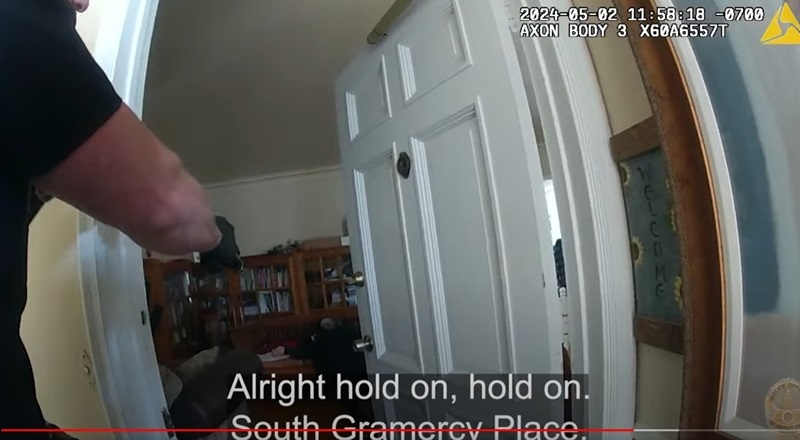The Los Angeles Police Department (LAPD) denied the Korea Daily’s public records request for information about the case of Yong Yang, who was shot and killed by a police officer. In response, the Korea Daily will file a civil lawsuit against the LAPD under the Public Records Act (PRA).
On May 10, the Korea Daily filed a lawsuit against the LAPD with attorney Chan Yong Jeong, requesting the release of public records information, including the officer’s body camera and audio recordings of about four hours of footage from the day of Yang’s incident.
The LAPD’s California Public Records Act (CPRA) unit responded on June 5, nearly a month later, saying that “the incident at issue is the subject of an open administrative investigation, and the LAPD asserts the temporary exemption in Penal Code 832.7(b)(8)(C).”

“We will provide you with an update to your request on or before October 29, 2024,” it said, adding, “Penal Code 832.7(b)(6) requires the LAPD to redact disclosable records for several enumerated purposes including to remove personal data or information; to protect the anonymity of complainants and witnesses; to protect confidential medical, financial, or other similar information; and where disclosure of the record would pose a significant danger to the physical safety of the subject officer or other persons.”
In other words, the LAPD declined to release all records at this time.
However, the LAPD on May 16 released some bodycam footage from officers who were on the scene. It is questionable that the LAPD cannot release the rest of the footage, given that they have already released body camera footage of the moments of the shooting. This also raises the suspicion that some of the footage released may not be consistent with the full video and transcripts.
“I don’t know what they’re trying to hide, but it’s important to see the scene’s cleanup process and the audio recordings in the patrol cars coming and going, because they’re not in the video that the LAPD released beforehand,” said Jeong.
Jeong also emphasized that the LAPD’s four-month timeframe to October is unreasonable.
“There is a precedent (Becerra v. Superior Court) that says an officer’s body camera is not investigative. It doesn’t make sense that they can’t give us the records because they’re under investigation,” he said, “and they sent a response that doesn’t even guarantee they’ll release the records after four months.”
In an emailed response, Jeong reiterated his request for immediate disclosure, citing 15 cases where police body camera records have been ordered to be released under the CPRA. The request also includes the personnel records of the officer who fired shots at Yang. The LAPD acknowledged in response to the Korea Daily’s request that the personnel records are public information.
There are a few exceptions to the confidentiality and non-disclosure of officer personnel records (Penal Code Section 832.7), which was amended by Senate bills in 2019 and 2022 to allow for the disclosure of officer personnel records in the following cases: officer shootings and use of force resulting in death or injury; officer sexual assaults against members of the public; officer misconduct, misrepresentations, reports, and evidence destruction; and officer bias or discriminatory behavior based on race, religion, gender.
The Korea Daily is filing a civil lawsuit against the LAPD this week to demand the information be released promptly.
“We are going to file a PRA violation lawsuit against the LAPD claiming that the records are investigative when it, in fact, is not and significantly delaying the disclosure of information,” Jeong said.
“The LAPD will have 30 days to respond to the complaint,” adding “They’re going to try to resolve this sooner than later because litigation usually results in expensive attorneys’ fees over time.”
BY SUAH JANG, HOONSIK WOO [jang.suah@koreadaily.com]




